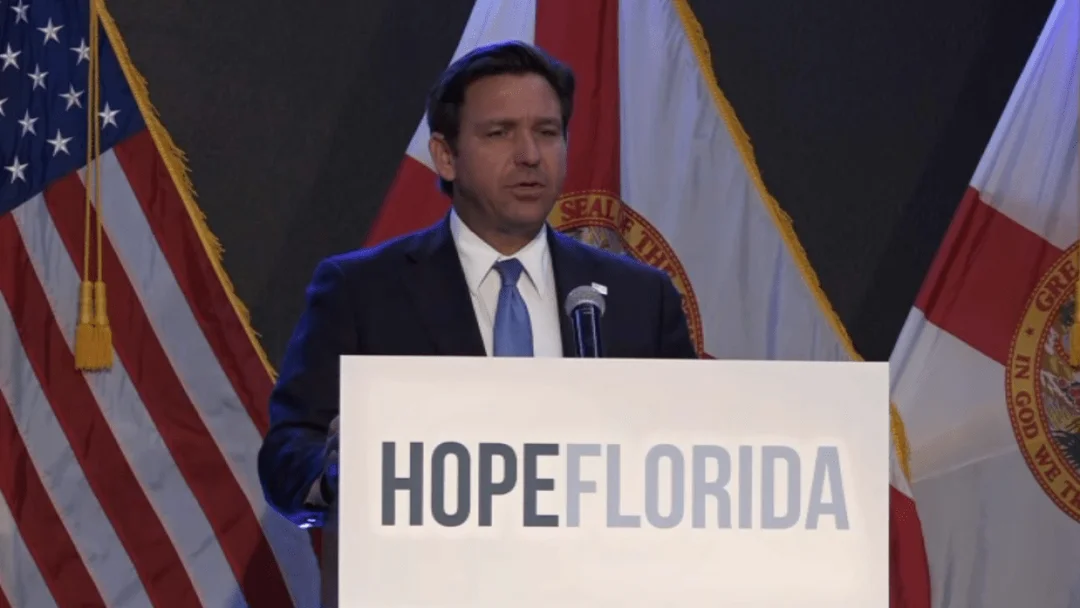
Unveiling the Shadows: How Florida’s Charity Funds Became a Political Battleground?
In a stunning turn of events, Florida's Hope Florida Foundation, spearheaded by First Lady Casey DeSantis, has found itself at the center of a heated investigation into the misuse of public funds. What began as a noble initiative to help residents escape welfare through private charities has unraveled into allegations of political maneuvering and potential criminal activity. As lawmakers wrap up their probe, questions linger about transparency, accountability, and the intersection of charity and politics in the Sunshine State.
The controversy stems from a $67 million settlement with Centene, a major Medicaid provider, over overbilling for prescription drugs. According to reports, $10 million of this settlement was diverted to the Hope Florida Foundation, rather than going directly into state coffers as required by law. Rep. Alex Andrade, a Pensacola Republican leading the investigation, accused key figures, including Florida Attorney General James Uthmeier and the foundation's lawyer Jeff Aaron, of orchestrating a scheme to funnel these funds to political committees. In a dramatic hearing, Andrade detailed how the money was quickly disbursed to two nonprofits, which then transferred nearly $8.5 million to a committee controlled by Uthmeier to defeat a recreational marijuana ballot initiative in November 2024.
Andrade's account paints a picture of clandestine operations: text messages revealed Uthmeier directing a nonprofit leader to apply for the funds, and board meetings for the foundation were held in secret. "There's no question that these were Medicaid funds steered by the governor's chief of staff through secret actions to his own political committee," Andrade told lawmakers, highlighting the rapid timeline from the settlement in September 2024 to the fund transfers just weeks later. Despite subpoenas and requests for records, key witnesses like Aaron and nonprofit leaders Mark Wilson and Amy Ronshausen backed out, citing attorney-client privileges and constitutional rights, leaving the committee without crucial testimony.
Comparisons to similar settlements in other states underscore the uniqueness of Florida's approach. While Ohio and Mississippi secured full payments without diversions, Florida's deal included this "sweetener" for the foundation, raising red flags. Critics, including Rep. Debra Tendrich, a Lake Worth Democrat, pointed out irregularities, such as the lack of public announcements and unusual grant conditions that allowed recipients to hide donors. The Agency for Health Care Administration defended the arrangement, claiming the $10 million wasn't pure Medicaid funds, but Andrade dismissed this as a "disinformation campaign," insisting it violated state law and potentially constituted money laundering and wire fraud.
Gov. Ron DeSantis has downplayed the scandal, calling it a misunderstanding and praising Hope Florida's philosophy. However, Andrade's investigation revealed a web of connections, including Uthmeier's meetings with Centene officials, which the governor's office has not fully explained. This episode not only questions the foundation's integrity but also highlights broader issues of public corruption in Florida politics.
In the end, the House probe concluded without prosecutions, leaving the matter to federal authorities like the FBI and DOJ. This saga underscores the fine line between charitable work and political influence, reminding us that every dollar of public funds must be handled with utmost transparency. What do you think—should charity foundations linked to political figures face stricter oversight? Share your views in the comments and help us explore the implications of this unfolding story.